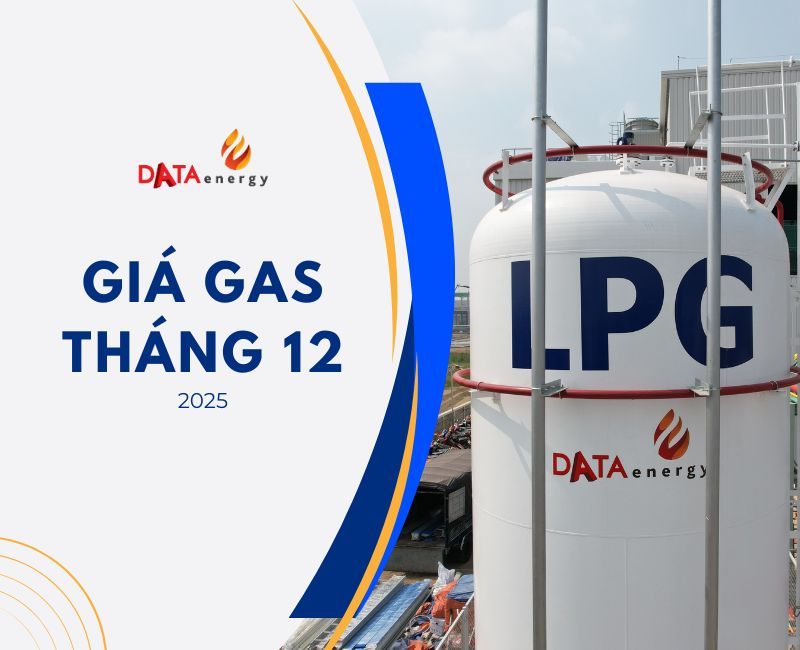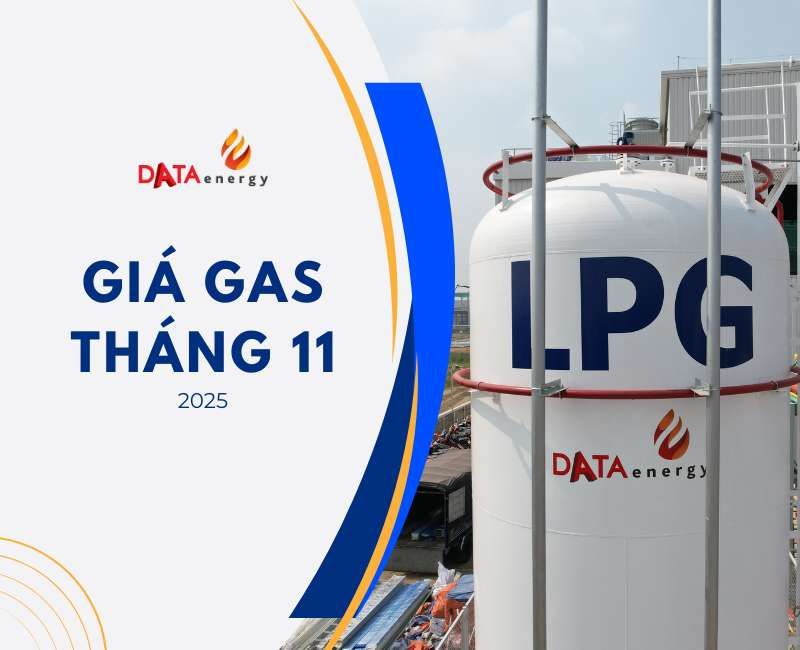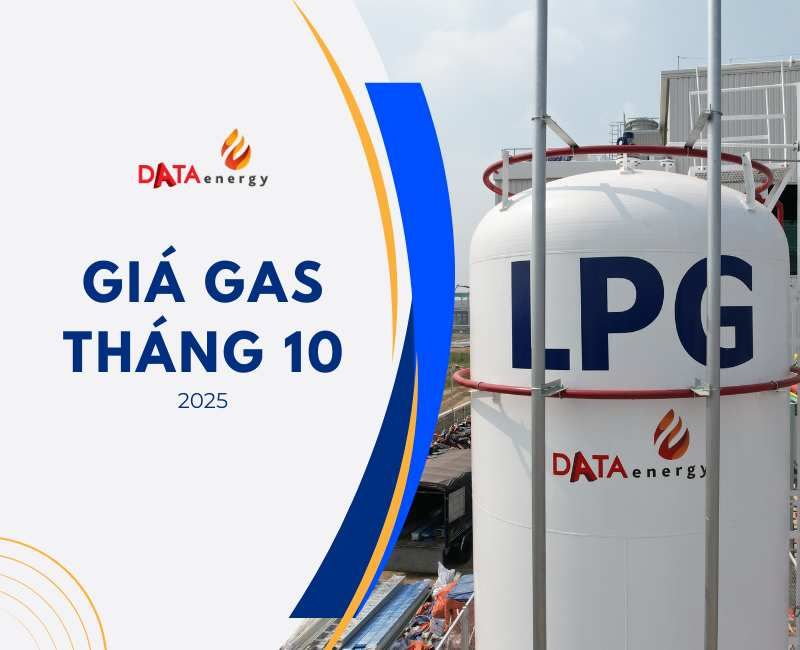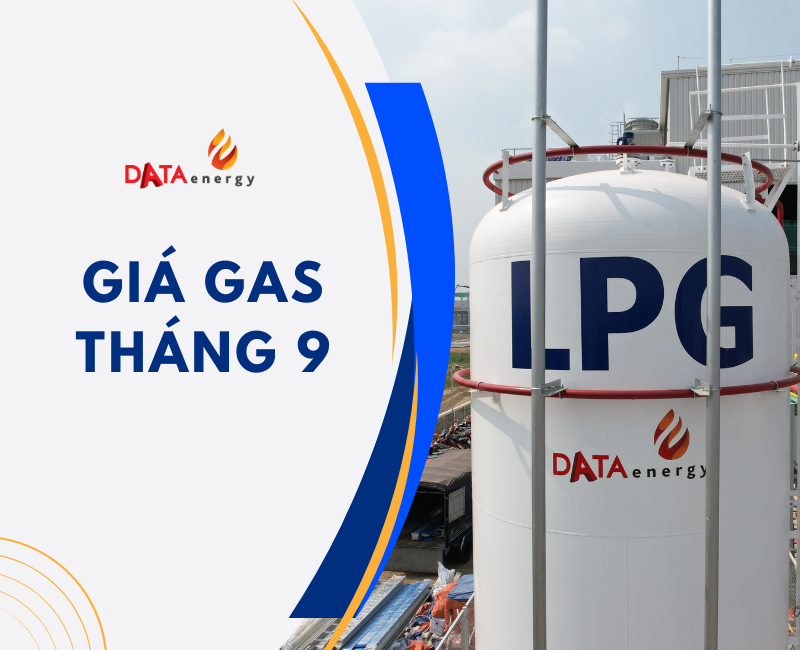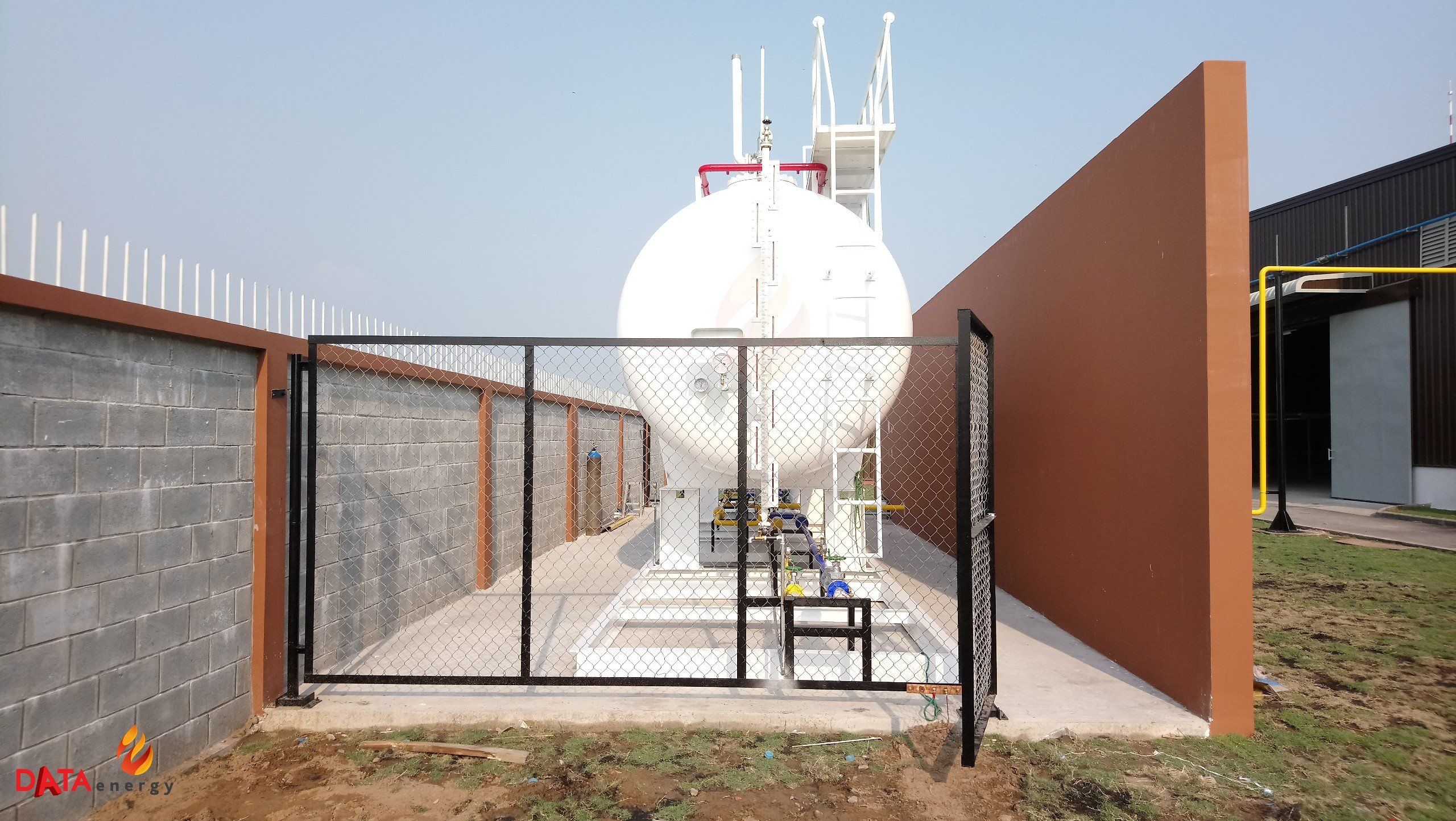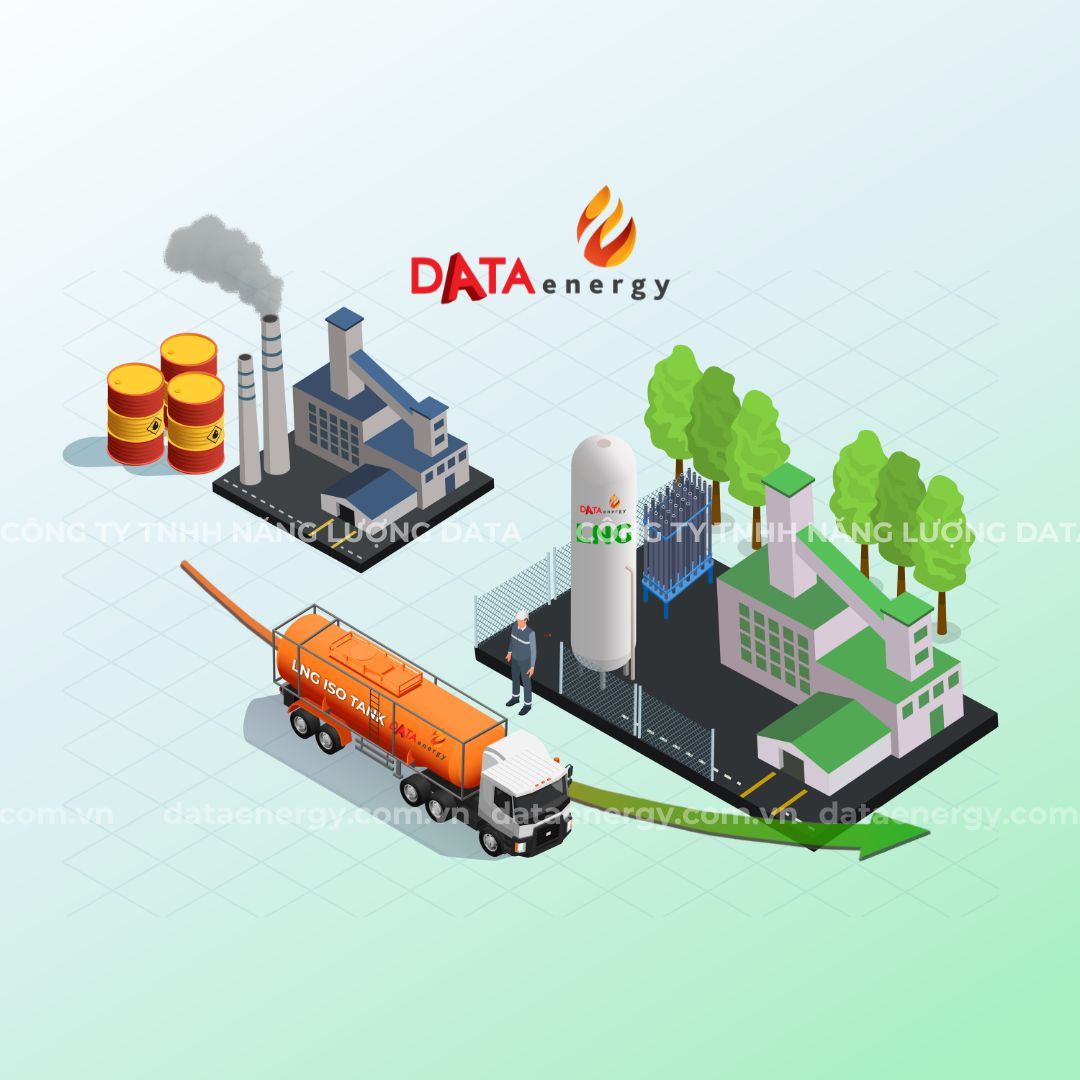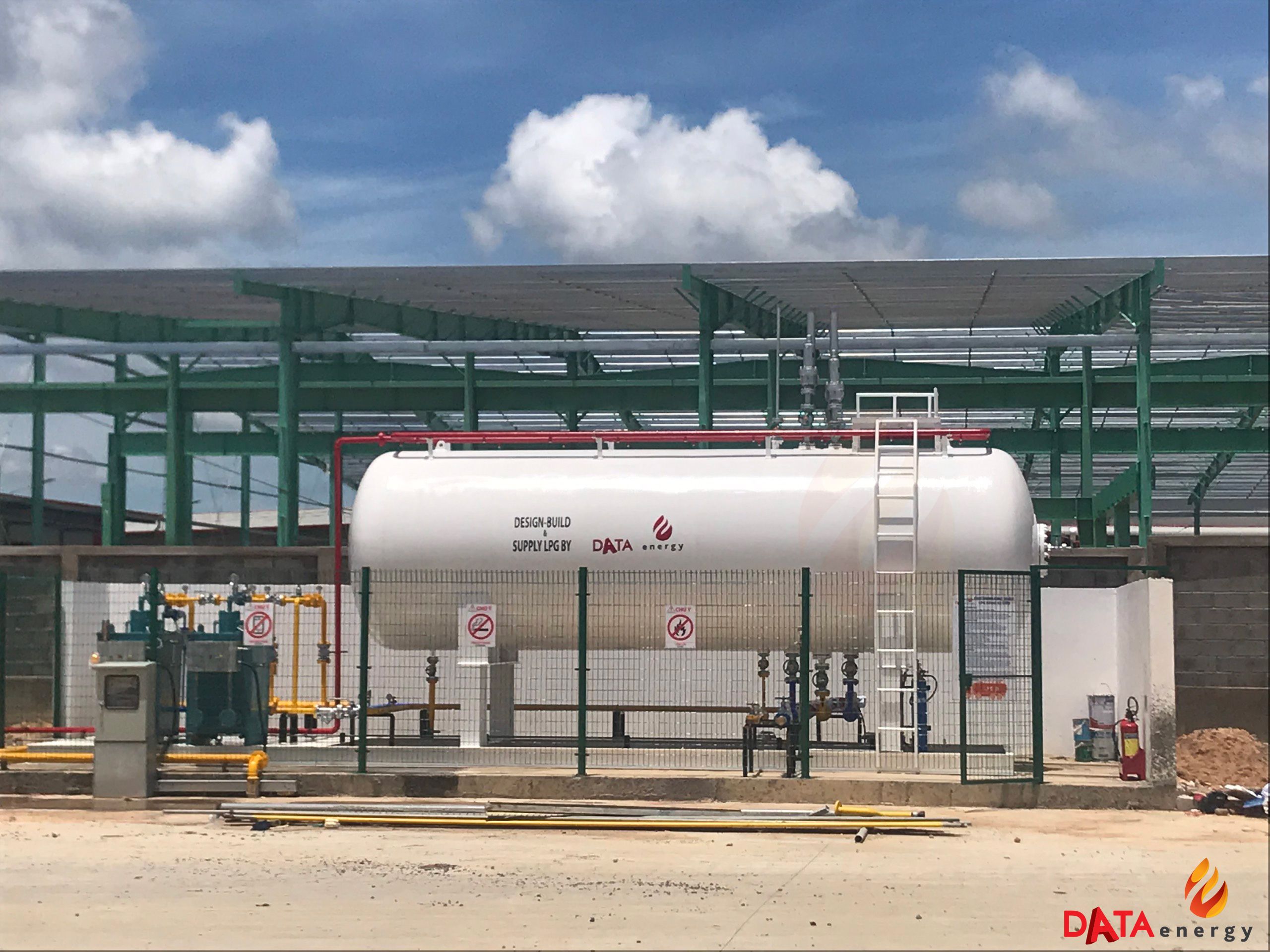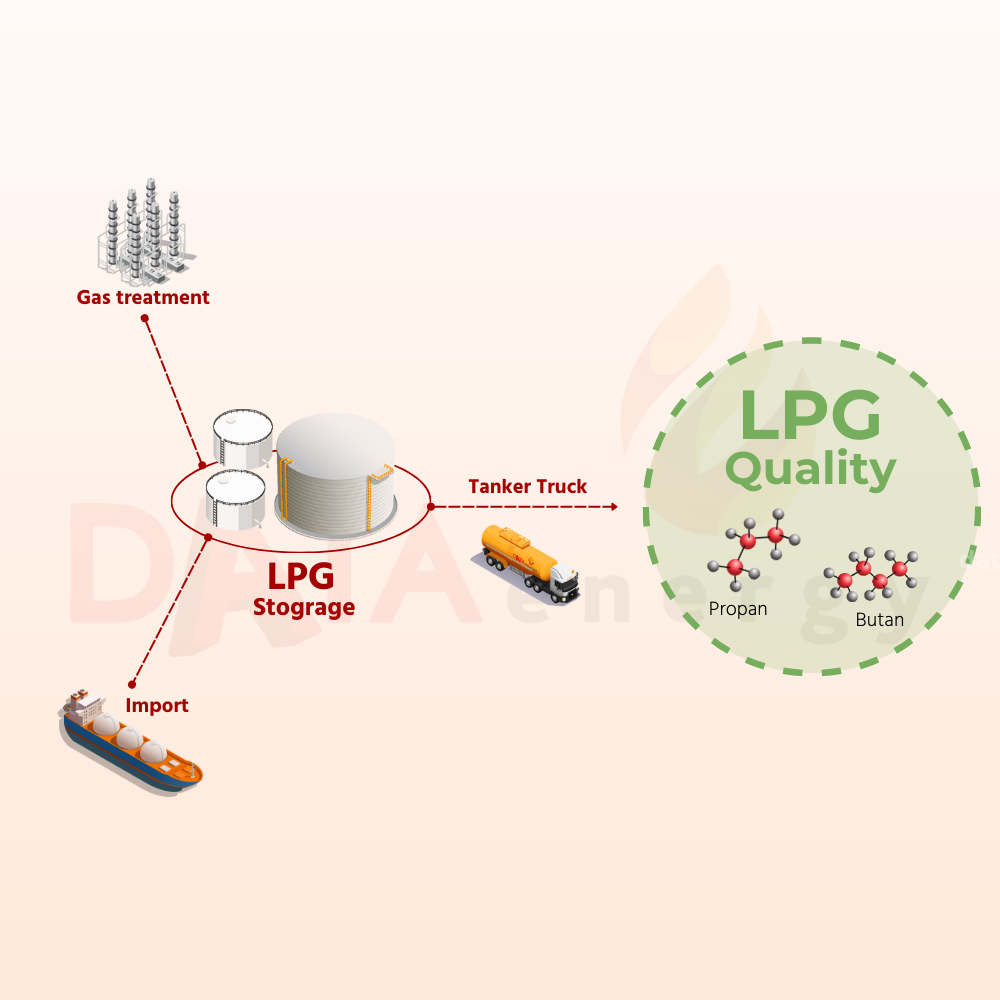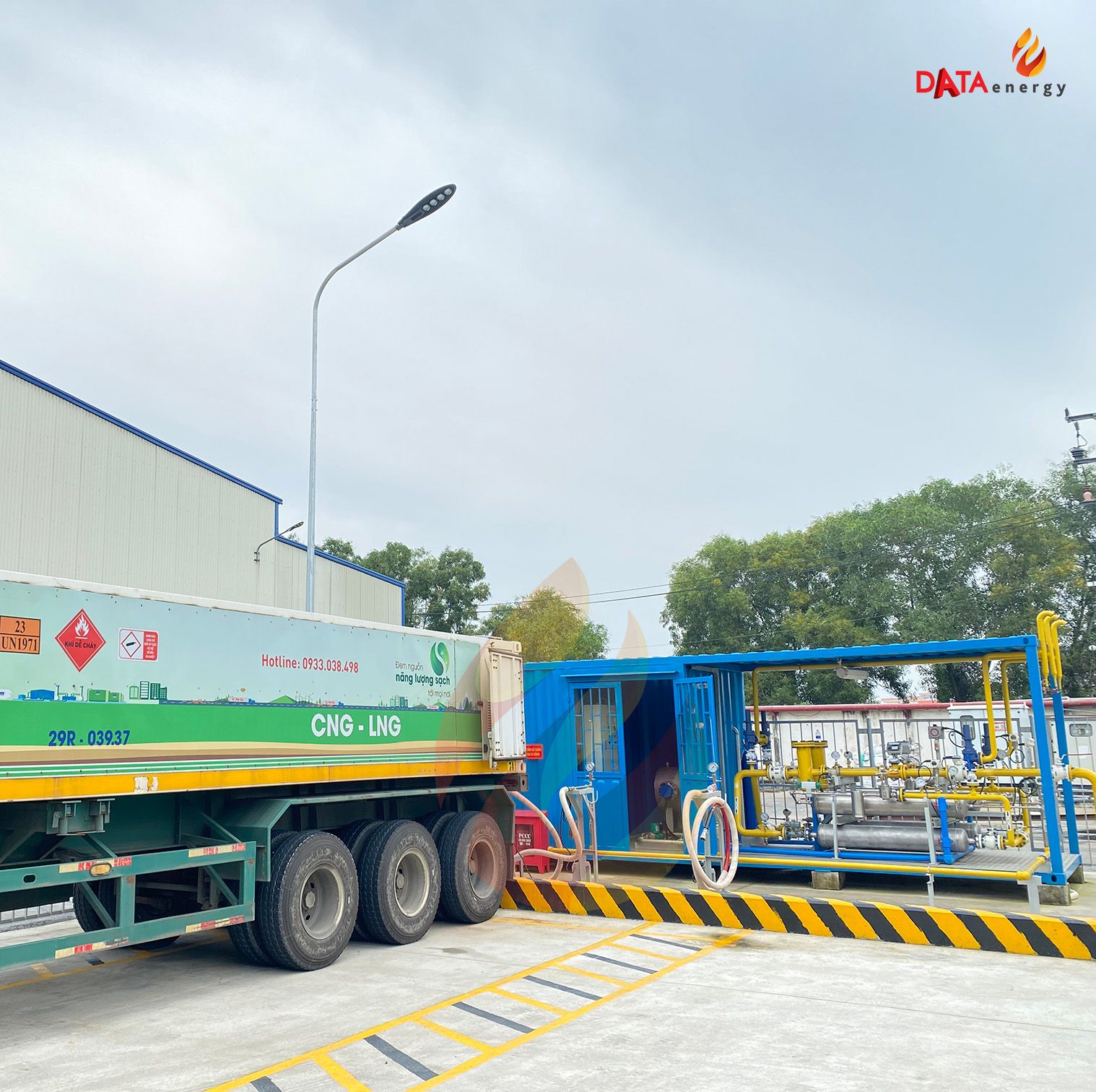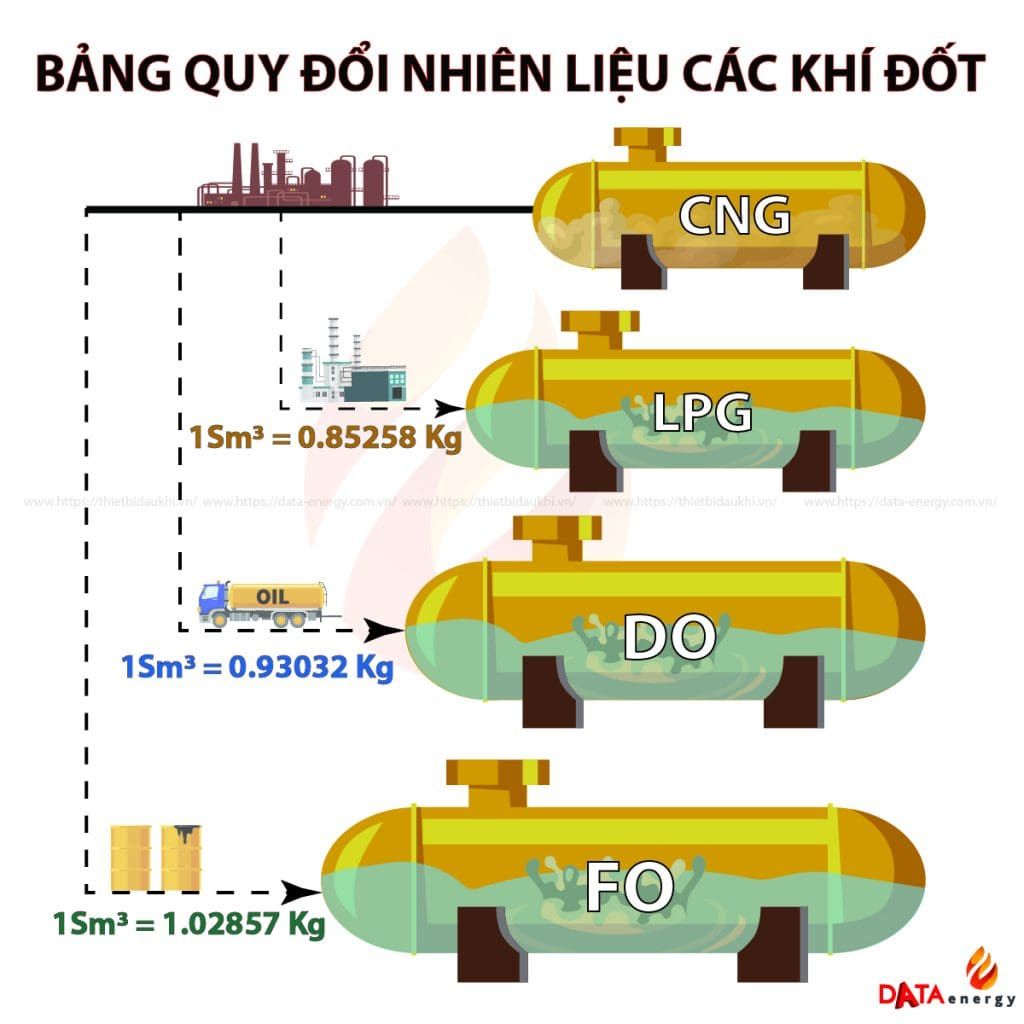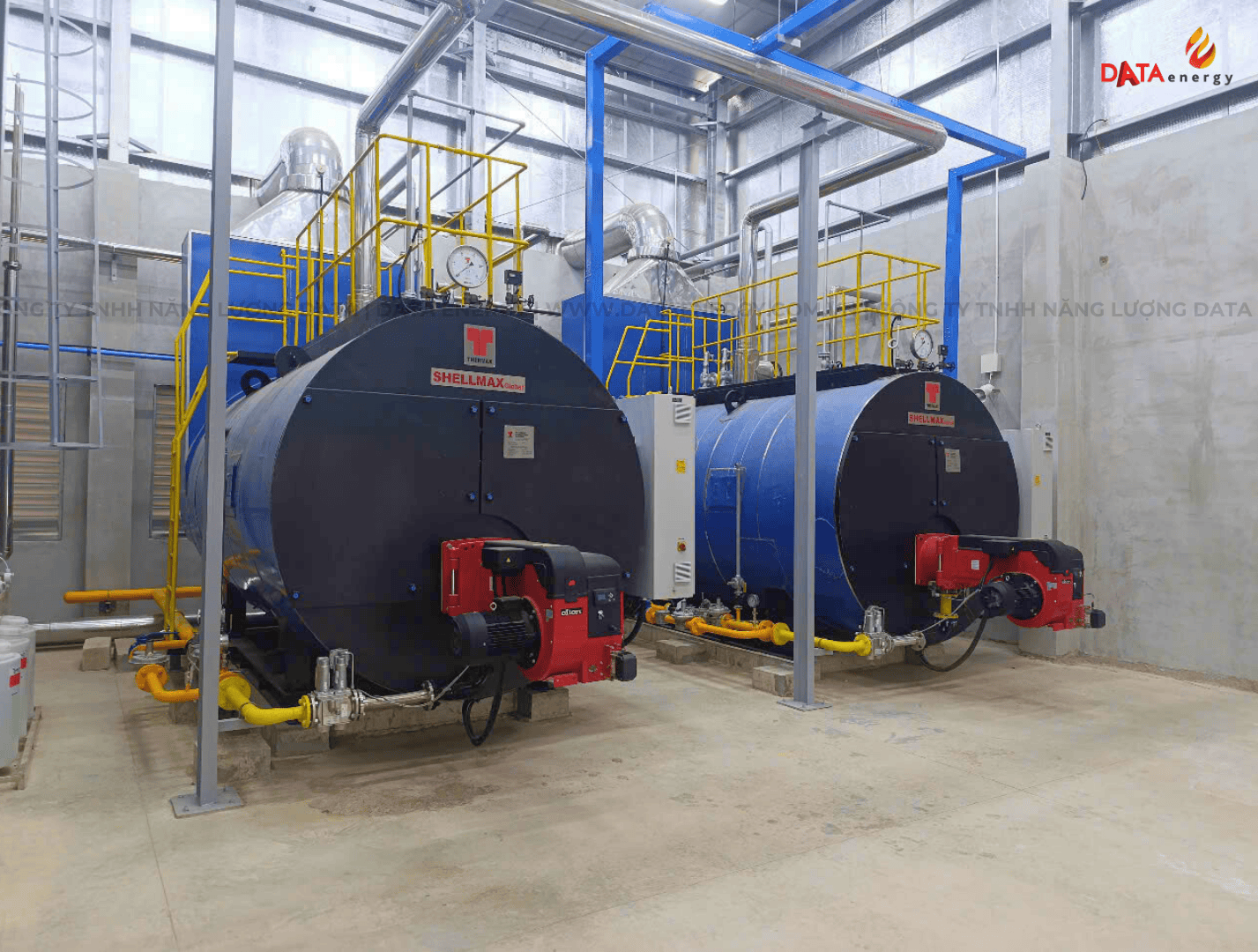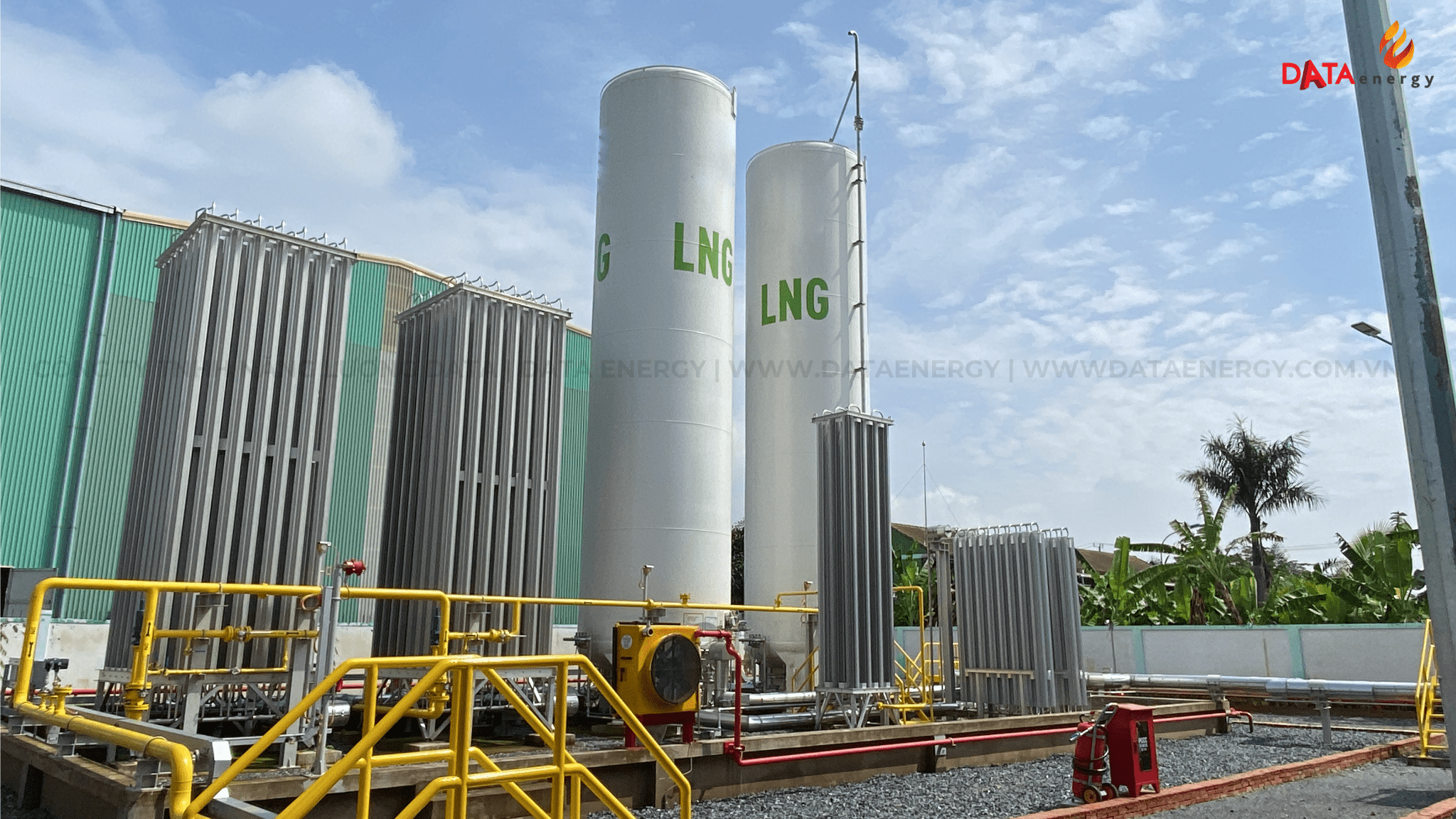WHAT IS AN LPG TANK?
08/01/2025
DATA Energy - A national provider of investment, consulting, design, and installation services for industrial LPG gas systems. Learn about the characteristics of LPG tanks, installation methods, and pricing in the article below.
What is LPG? LPG stands for liquid petroleum gas, also known as liquefied petroleum gas. LPG is a mixture of hydrocarbon gases, primarily propane (C3H8) and butane (C4H10) in a 50/50 ratio. This mixture is compressed into a liquid state for storage under a certain pressure.
WHAT IS A LPG TANK?
LPG tanks, also known as industrial gas tanks, are equipment in LPG station systems used to store liquefied petroleum gas (LPG) for production and commercial purposes. LPG is a flammable and highly hazardous substance, so during operation of equipment related to LPG, safety inspections must be strictly implemented to eliminate potential hazards. Tanks for storing liquefied gas (LPG, CNG, LNG) are mandatory equipment that must meet strict occupational safety requirements.
There are two main types of LPG tank installation: above-ground tanks (horizontal or vertical) and underground LPG tanks, depending on installation needs and site conditions, such as space and terrain.
 và lắp đặt ngầm dưới mặt đất.png)
APPLICATIONS OF LPG TANKS
LPG tanks are widely used in various industries:
- Industry: Gas tanks are used in the production of handicrafts, food processing, metallurgy, galvanizing, etc.
- Chemical, machinery, shipbuilding, electronics industries: Gas tanks provide energy for gas mixing, gas burning, or gas mixing, metal cutting, mechanical processing, etc.
- Scientific research and other industries.
- Production of ceramics, porcelain, glass, tiles, etc... Overall, this is the main source of LPG consumption in Vietnam.
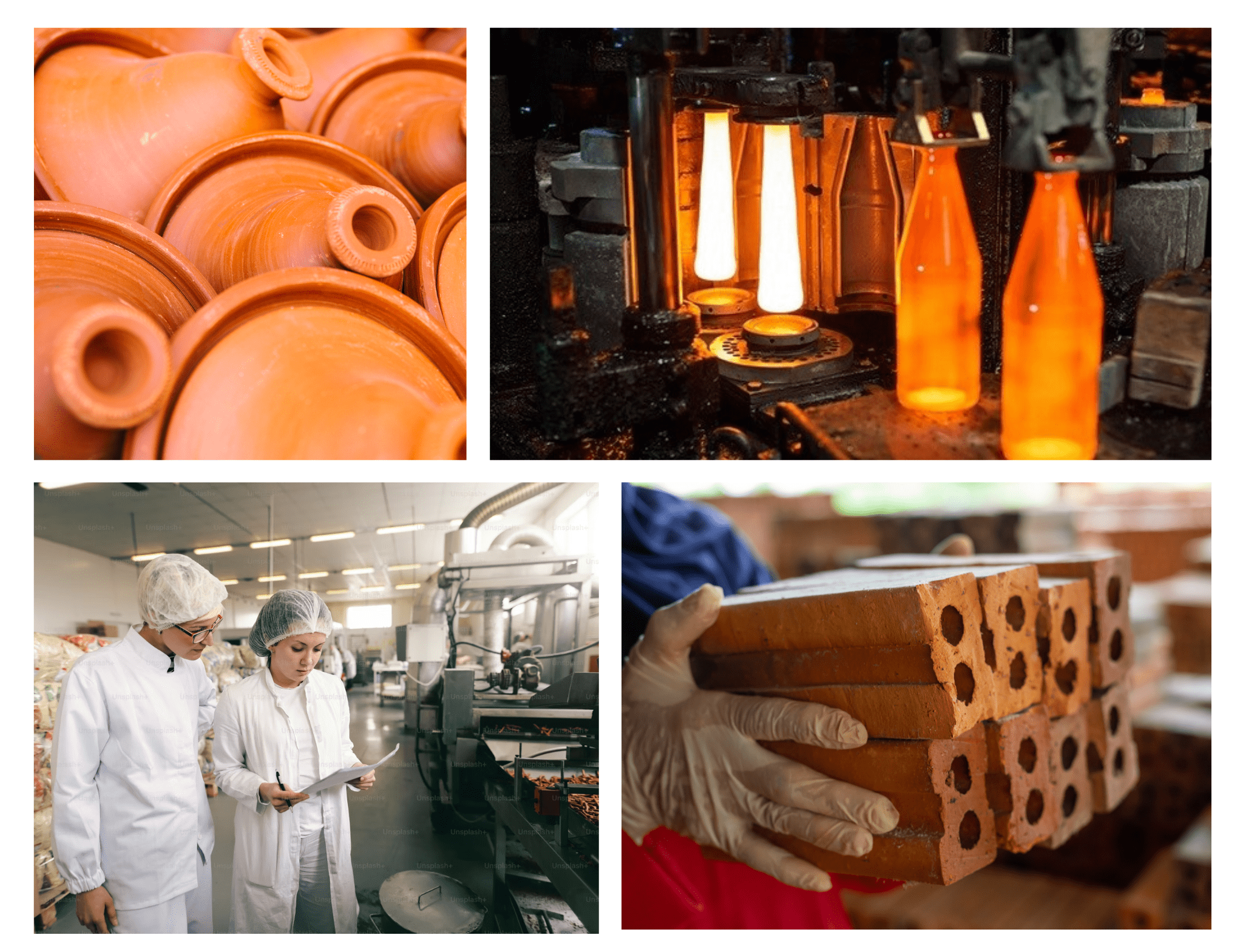
HOW MUCH DOES AN LPG TANK COST?
The price of LPG tanks varies greatly depending on the following factors:
- Age: Used LPG tanks typically have a lower price than brand new ones.
- Capacity: The price of tanks varies depending on their capacity. The most common capacities are 5m³, 10m³, 20m³, 30m³, 40m³, and 50m³, depending on the needs of the user.
- Material and thickness: The price, durability, and safety of tanks vary depending on the type of steel and its thickness used in production.
- Supplier: The price of LPG tanks with the same capacity and material can vary between different manufacturers.
- Domestic or imported production: Whether the product is manufactured domestically or imported also affects the price of LPG tanks.
In addition to the 5 factors mentioned above, the price of LPG tanks will also depend on transportation costs and installation costs. The cost of installing underground LPG tanks is the highest, followed by standing floating tanks and finally lying floating tanks.
LPG tanks are a very important part of the LPG station system. In addition, the LPG station system also needs vaporizers and other equipment to convert liquid LPG to gas before use. To ensure safety throughout the use of LPG tanks, make sure you always comply with safety regulations during the use of the tank and remember to check regularly.
- DATA Energy will provide operational guidance to the customer's technical staff to ensure the system operates safely and continuously, as well as monitoring performance indicators and fault signals.
- DATA Energy organizes maintenance of the industrial LPG gas system every 3 months and always provides 24/7 support for troubleshooting.
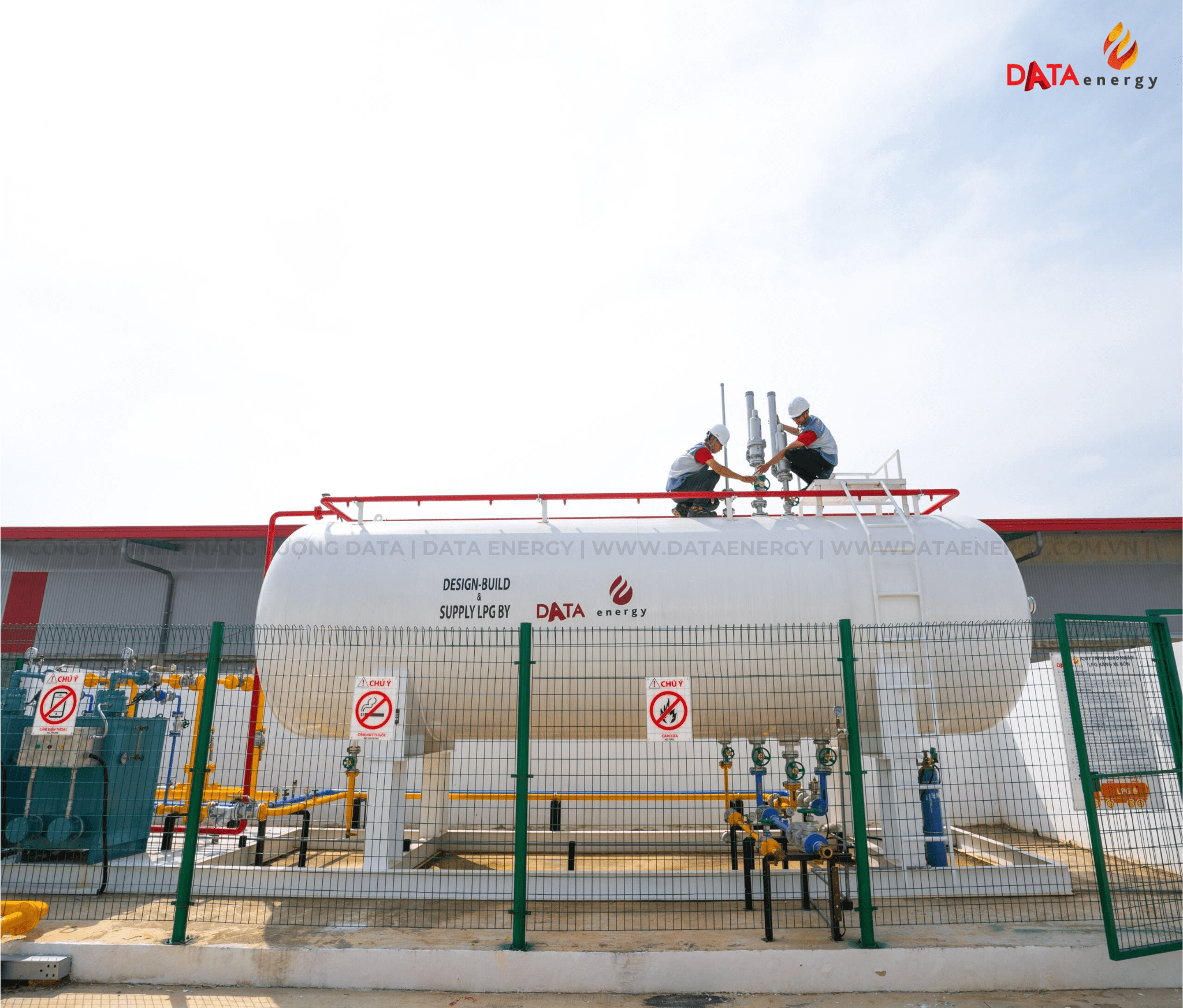
Other:
- DATA Energy will advise and supply gas to customers.
- DATA Energy is also a consulting and gas conversion unit.
See more:
- LPG industrial gas system installation process
- TCVN 7441: 2004 Industrial LPG system design and installation standards
- LPG supplier
![]()
DATA ENERGY COMPANY LIMITED (DATA Energy)
- Supply LPG, CNG, LNG.
- Consult, Design, Install Industrial Gas System.
- Invest Gas System (LPG, CNG, LNG) for the factory.





